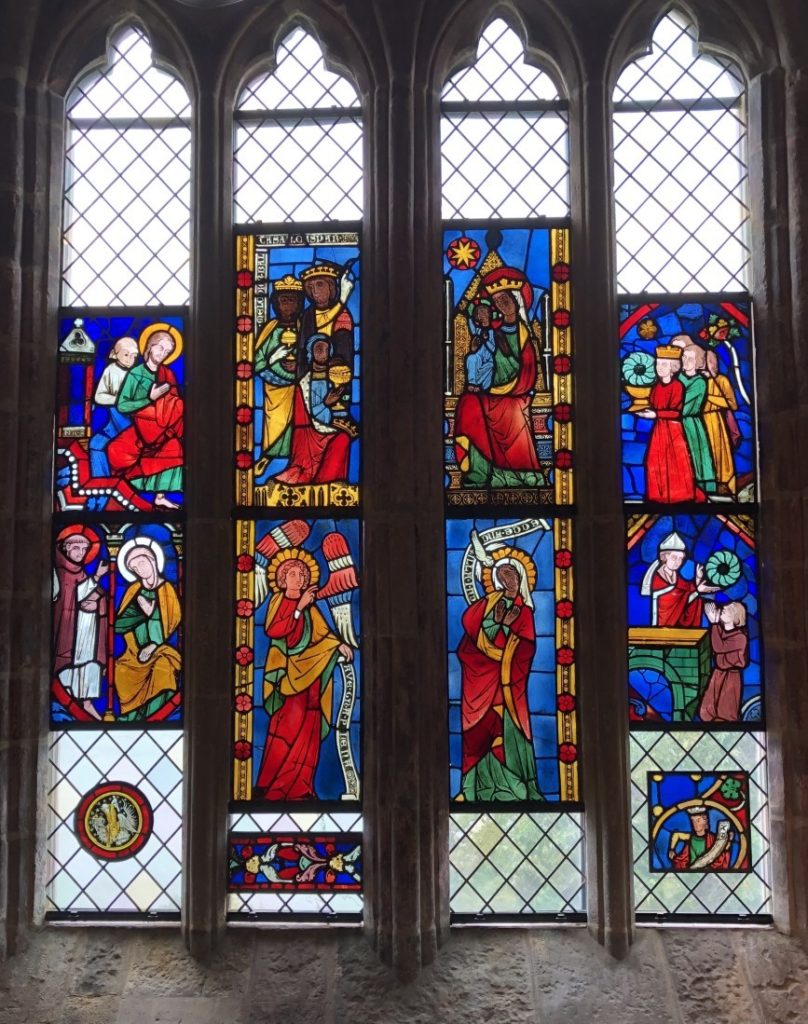In today’s article, I resume my Quarantine Sessions series with a piece on Seven Spanish Angels, originally recorded by Ray Charles and Willie Nelson. I received a request to cover this song from a reader who enjoyed my previous Quarantine Session article covering Johnny Cash’s Folsom Prison Blues. Surprisingly, I had never heard of Seven Spanish Angels before starting work on this project.
The Quarantine Sessions is a musical collaboration project between me and fellow musician Mark Caserta. You can find my previous Quarantine Sessions articles and recordings in the series archive. In this post, I will discuss Seven Spanish Angels and include links to two renditions of the classic song that we recorded together.
The Origin and Story of Seven Spanish Angels
Seven Spanish Angels was composed by Troy Seals and Eddie Setser. It was first performed by the legendary Ray Charles and Willie Nelson in 1984.
The lyrics tell the story of an outlaw and his romantic partner, both of whom are being hunted by lawmen. When they are cornered, they decide to fight instead of surrender. The outlaw is shot dead almost instantly. His partner, determined to not live on without him, points an empty gun at a lawman, leading to her being shot and killed as well.
The song is framed with seven Spanish angels bringing “another angel home.” Seals stated that his goal was to make the song ethereal and believable. For whatever it’s worth, I think that he succeeded. When I first listened to the song and studied the lyrics, I assumed that it was a traditional ballad. My assumption was due in part to the fact that the song is in a major key. There is a long tradition of older sad songs being set in a major key, such as You Are My Sunshine. I only discovered after further research that it had been composed relatively recently.
A Brief Ray Charles Aside
While I had not been familiar with Seven Spanish Angels, I am very familiar with Ray Charles. Charles’s interpretations of country music have had a significant impact on my musical tastes and playing in a number of ways – direct and indirect.
One of my father’s favorite albums is Ray Charles’s Modern Sounds in Country and Western Music. The album consists entirely of Charles’s interpretations of country classics. Our family was briefly without a working copy when we transitioned our home sound system to CDs. At that time, copies of the album were scarce due to copyright issues holding up production. Undeterred, my father tracked down a CD copy of Modern Sounds in Country Music and paid a whopping $75 to add it to our CD collection. To be sure, $75 for a CD was and remains a whopping sum – but I am grateful my father paid the premium.
Charles’s Modern Sounds in Country Music is not only a great album in its own right, but a portal to a broader tradition. It inspired my family to track down the original songs that Charles was covering. It was through this introduction that I discovered the works of the great Hank Williams.
Our two Seven Spanish Angels Recordings
December 30, 2024 Update: Replaced SoundCloud links with YouTube links to the recordings.
All of my previous Quarantine Sessions articles have covered and included one song. Today, I have a double feature – Mark Caserta and I recorded two versions of Seven Spanish Angels. Below, I will explain what went into each recording and include a link to the full song.
The Old-Time Version
I used my Audio Placid Copperphone microphone for the first recording. I covered the difficult path that this microphone charted from Michigan to my doorstep last summer in an article here at The New Leaf Journal.
The microphone is designed to produce an antique sound. I used it to double down on the old-time feel of Seven Spanish Angels.
For his part, Mark Caserta used settings on his ukulele to match the tonality of my microphone. One may not expect to hear a ukulele in a song like this one, but the nylon strings can hit a similar range as a classical guitar when applied in the right way. We added some old record sounds to complete the retro-feel of the recording.
The Minor-Key Recording
I frequently performed a minor-key version of You Are My Sunshine with my band. The lyrics of You Are My Sunshine do not match its traditional key by modern standards, causing many to view it as a happy song when it is anything but. I think that playing it in a minor key gives the song a sad and eerie feel to match its lyrics.
Mark Caserta and I gave the same treatment to Seven Spanish Angels. He added drums, bass, and the accompanying electric guitars to complete the recording.
Final Thoughts: Which Do You Prefer?

I am curious which of our two versions of Seven Spanish Angels you prefer. Feel free to vote and/or share any additional thoughts about Seven Spanish Angels and our Quarantine Session in The New Leaf Journal Guestbook.